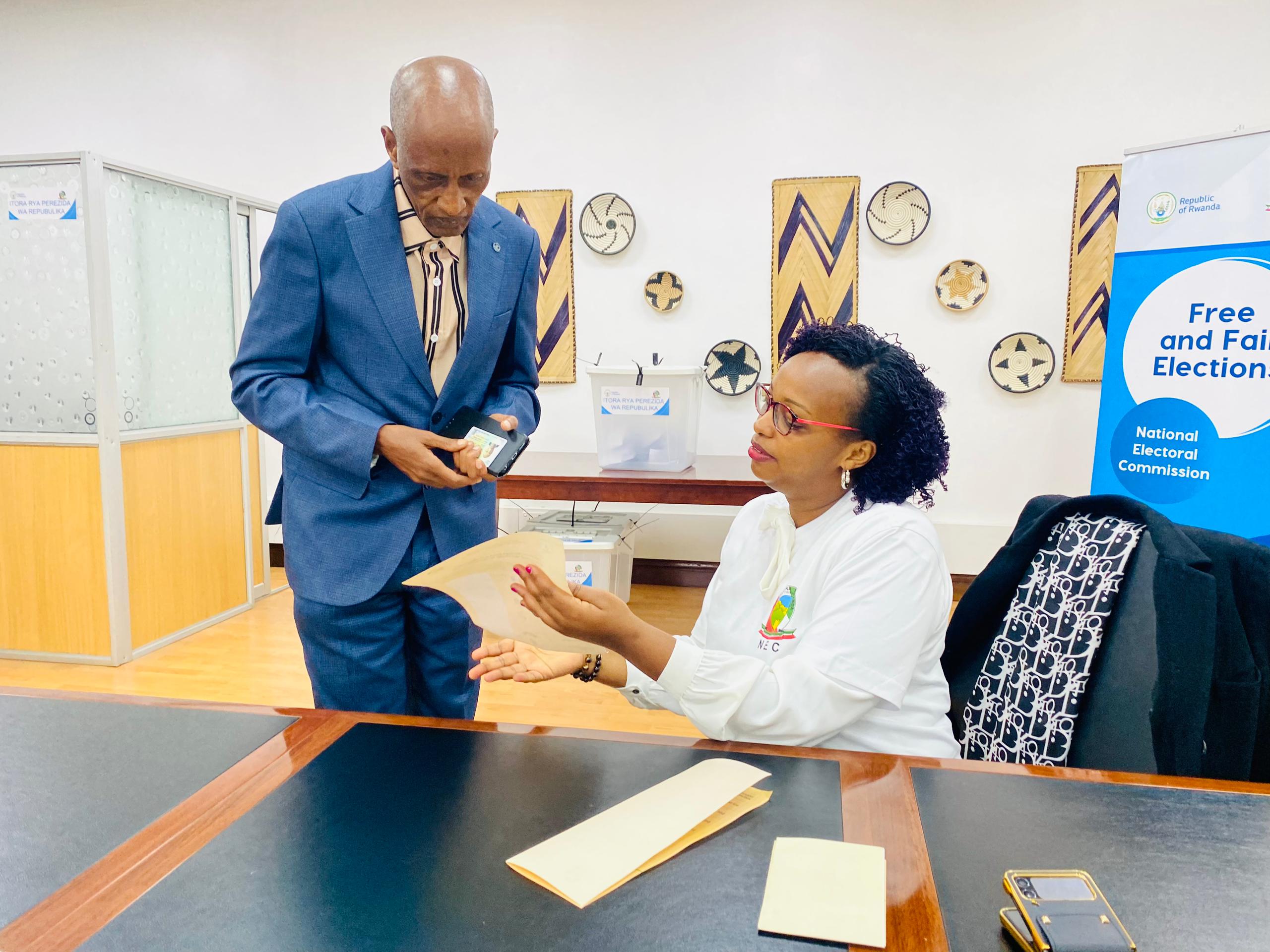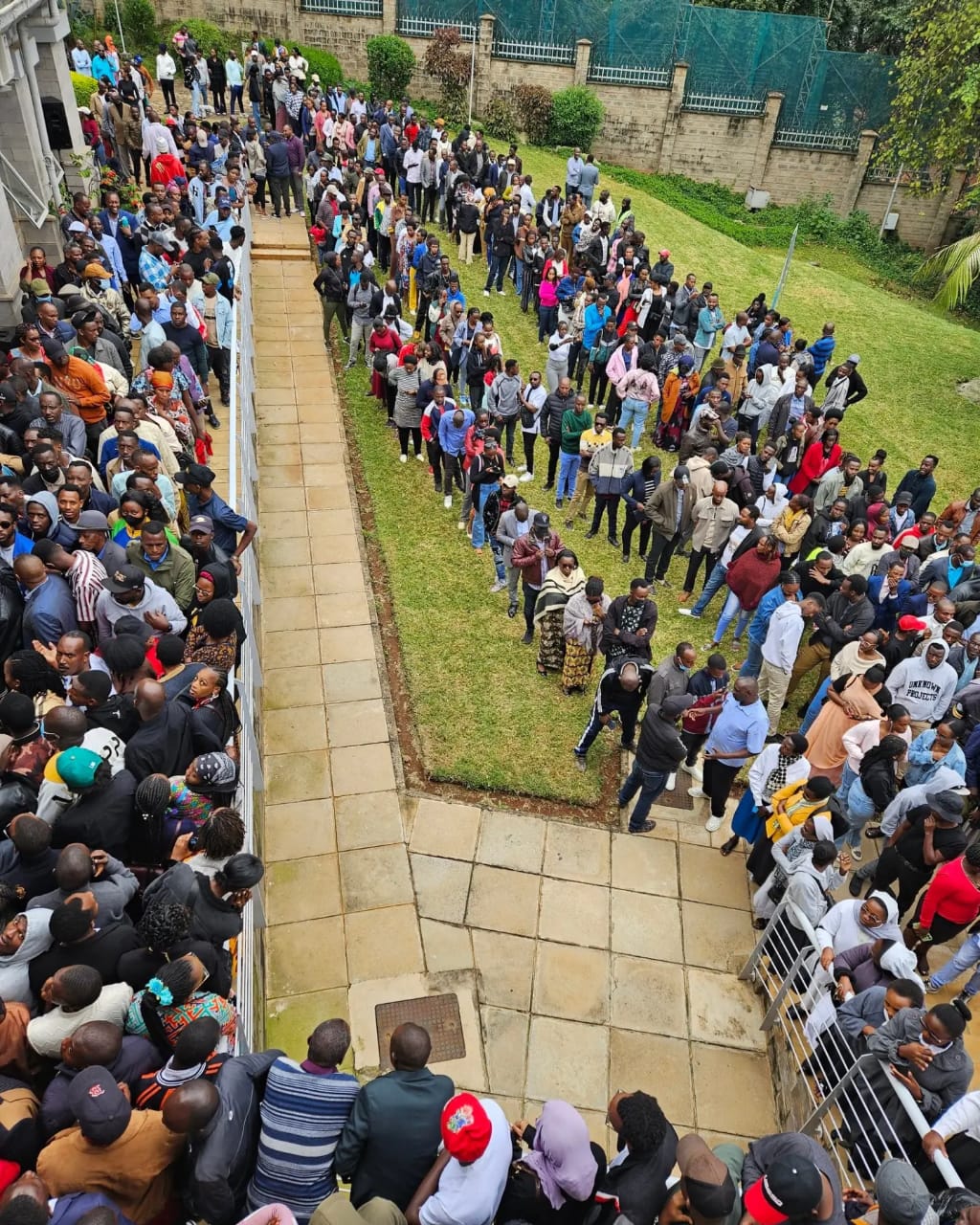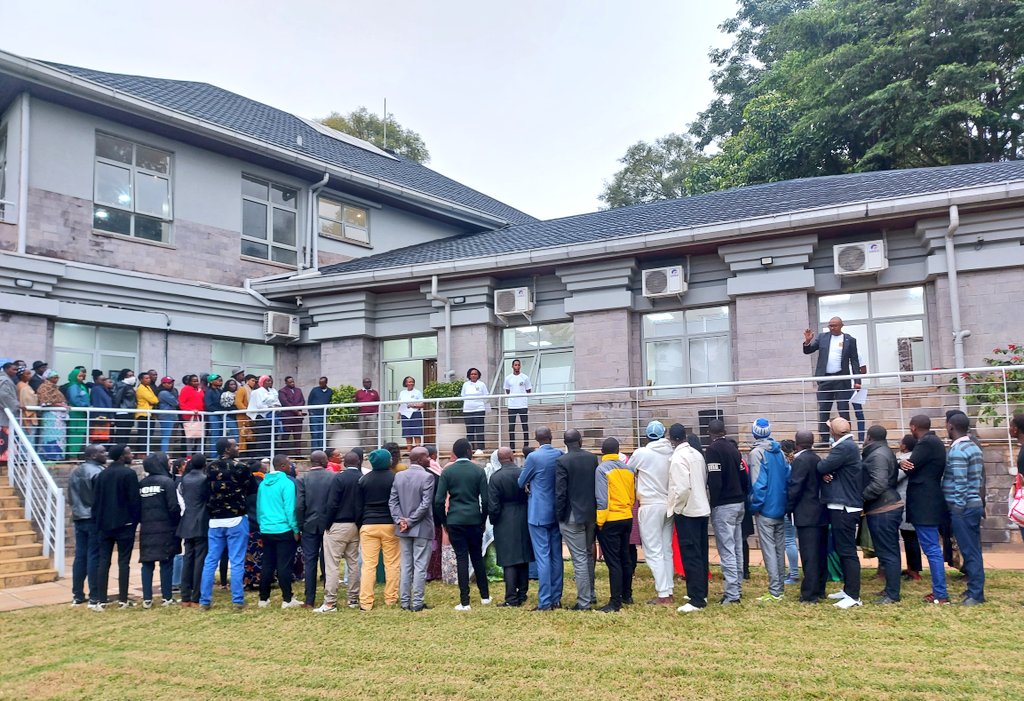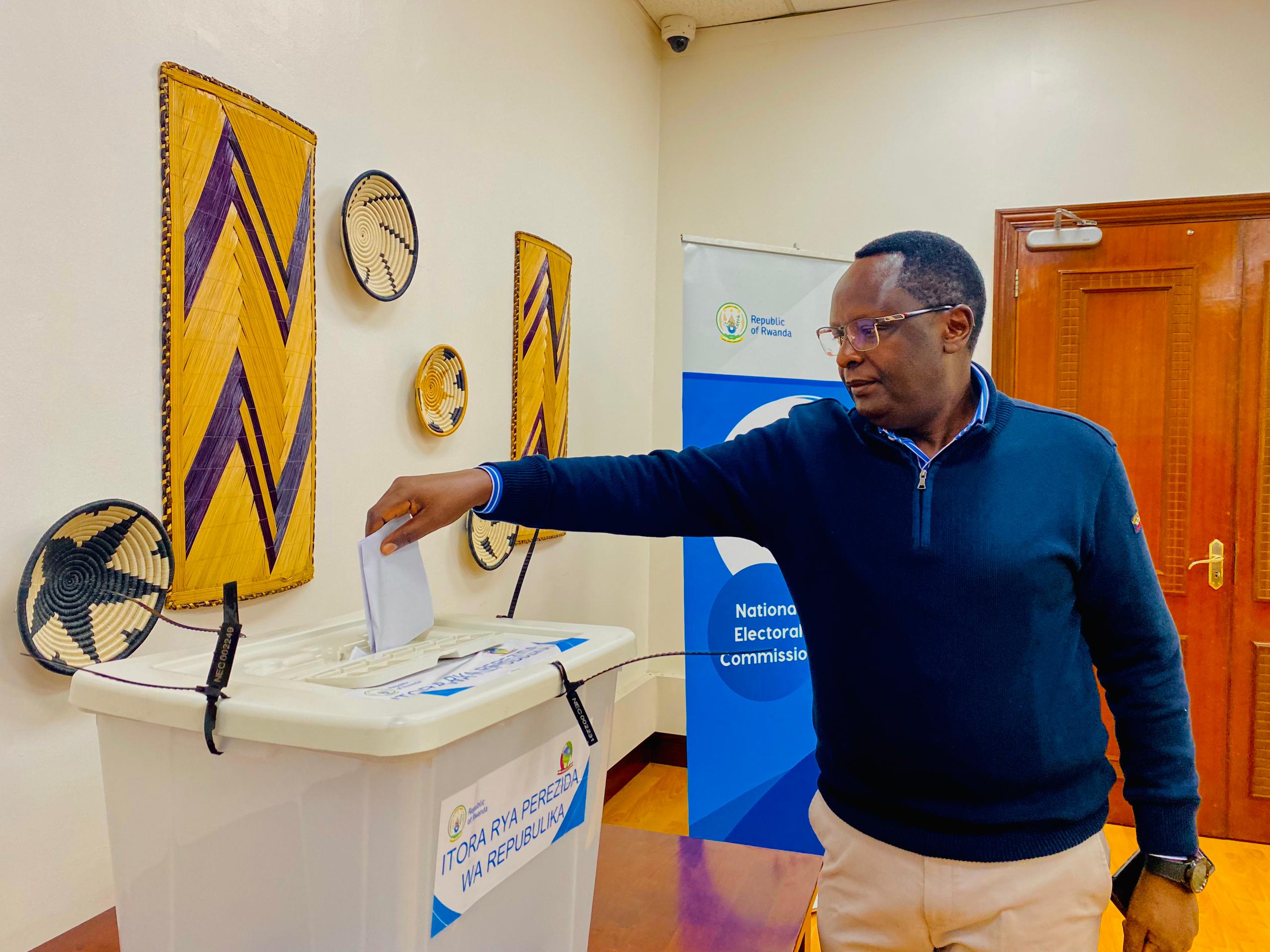The Rwandan community living in Kenya on Sunday turned out in large numbers at polling stations in Nairobi and Mombasa to vote for Rwanda’s next president and members of parliament.
The diaspora elections were held a day ahead of those in the capital, Kigali, where voters will choose on Monday who will lead the country for the next five years.
The presidential candidates are incumbent Paul Kagame of the ruling Rwanda Patriotic Front (RPF), lawmaker Frank Habineza of the Democratic Green Party of Rwanda, and independent candidate Philippe Mpayimana.

This is the second time the trio is competing for the presidency, following the 2017 election won by Kagame.
In the parliamentary elections, 589 candidates are contesting for 80 seats in the Lower House of Parliament.
According to the Rwanda High Commission in Nairobi, over 4,000 Rwandans registered for this year’s elections, and voter turnout on Sunday exceeded expectations.
Don Gisa, a Rwandan university student and first-time voter, expressed his satisfaction with participating in the electoral process.
“I was looking forward to this moment because it allows me to decide who has the potential to lead my country for the next five years,” he said.

Gisa hopes the new leadership will continue Rwanda’s current trajectory, prioritizing the interests of Rwandans, fostering economic growth, and reducing poverty.
Sandra Mugwaneza echoed these sentiments, noting Rwanda’s progress over the past three decades while acknowledging the need for further improvements.
“A lot has been achieved over the years, and most of us didn’t even imagine getting to where we are today as a country. Nonetheless, we still have a long way to go, which is why today I came to vote for those I believe have the ability to help us overcome the remaining challenges,” she said.

Mugwaneza highlighted the importance of addressing youth unemployment and attracting more investments to build infrastructure that benefits all citizens.
The Rwanda Electoral Commission reported that nine million people registered for this year’s combined presidential and parliamentary polls, including more than two million first-time voters born after the 1994 Genocide against the Tutsi.
During a press conference on Saturday, Kagame, who is seeking his fourth term, was asked about Rwanda’s future leadership.
He responded that he could not predict the country’s future post his leadership, emphasizing that Rwandans should decide their next leader, and urging foreigners to focus on their own countries’ issues.





